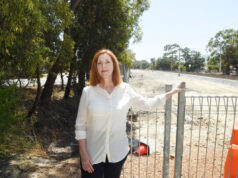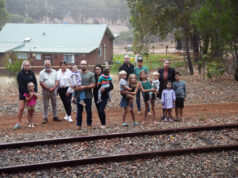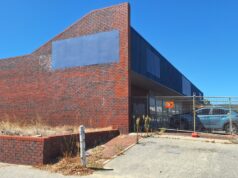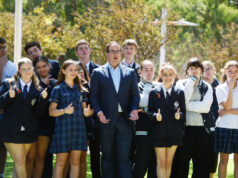Curtin University is seeking Year 6 students from across the state and country to participate in a study aimed at improving understanding of the transition to secondary school.
With school holidays offering an ideal opportunity for participation, a gift voucher will be provided to students as a thank you.
Led by Curtin’s enAble Institute, the study is hoping to survey students currently in grade 6 with their parent’s or carers’ permission, to identify factors that may contribute to better mental health as children transition from primary to high school.
After completing a survey this year, participants will be invited to complete a follow-up survey at the end of next year, providing valuable insights into their experiences during their first year of high school.
Professor Mark Boyes, co-lead of the mental health domain at Curtin’s enAble Institute, is running the study and said the transition from primary school can be a stressful period for a lot of children, with language and literacy difficulties potentially worsening this experience.
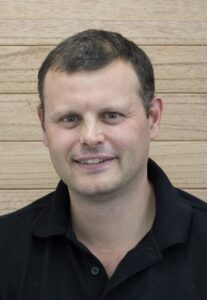
“There’s quite a lot of evidence now that children with language and literacy difficulties experience worse outcomes, but we don’t really know why,” Professor Boyes said.
“Understanding the why is really critical to thinking about identifying children early and potentially getting supports in place.”
Professor Boyes is hopeful of gathering a broad range of experiences through the study to deepen the national understanding of student’s experiences during the transition into high school.
“Participating in this work is really important to help us understand mental health over the transition, for both children with and without language and literacy difficulties,” he said.
“Getting as many diverse experiences as possible is super important because obviously, everyone’s experience is different, and so the more experiences and perspectives that we can get, the richer that data.”
Associate Professor Suze Leitão from Curtin’s School of Allied Health said language and literacy difficulties are among the most common but least recognised challenges faced by children.
“Up to 15 per cent, or about four children in every Australian classroom, experience significant and persistent difficulties with oral and written language.” – Associate Professor Leitão.
“Overall, our aim is to develop effective and accessible interventions – other than the standard ‘talking therapies’ – for children with speaking, reading or writing difficulties, to provide early support to these children before mental health problems become serious.”
With the most recent national data on child and adolescent mental health coming from a 2013–14 survey, Professor Boyes believes this study will provide crucial updates and insights to support children’s mental health in a rapidly changing digital world.
He said while the study will provide extremely valuable insights, the whole process is relatively quick and straightforward.
“We’ve got a really fantastic team of approachable research assistants who walk children through all of the surveys and language and literacy tasks, so children are very much scaffolded and supported through the whole process,” Professor Boyes said.
“Taking part can be entirely online if they want, or in person, if families prefer that, and by taking part, hopefully, you’ll be helping improve and make that transition easier for children in the future.”
Students will be asked to complete online or in-person language tasks and a survey, while parents/carers will fill out a survey and receive a non-diagnostic report of their child’s performance.
To register or for more information, please email lalyp@curtin.edu.au or fill out the expression of interest form here.




